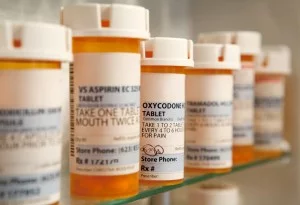Prescribed medications can pose a health and safety risk in the workplace.
Read more
When we talk about drugs that are a workplace hazard, people often think of the usual suspects like marijuana, cocaine, heroin and ice, among others. What many don’t realise is that prescribed medications can pose such a health and safety risk in the workplace too.
Employers with workplace drug policies in place also need to realise that prescription medication use or abuse in the workplace can be the toughest drug problem they will have to face.
Legally obtained prescribed medications
More often than not, prescription medications are obtained legally. A patient may have a medical condition, and attending physicians have an obligation to prescribe medication that will alleviate symptoms such as pain. The problem with pain relievers, especially the powerful ones, is that most, if not all of them are opioids which can be a hazard in the workplace.
To alleviate pain, opioids interact with pain receptors located in the brain and spinal cord. However, while opioids are effective painkillers, they come with side effects that could put people in the workplace in danger, particularly if the employee concerned is tasked with driving a vehicle or working around machinery. The more common side effects of opioids include drowsiness, dizziness, and nausea. Apart from opioid painkillers, other commonly prescribed medications with side effects that could impair a worker’s ability to concentrate include antibiotics and antidepressants.
Then again, not all people who take prescription medications do so to relieve symptoms. Prescription medication abuse is one of the fastest growing drug problems in the world, and it’s highly likely to be a growing problem in the workplace as well.
Traditional drug testing does not work
As previously stated, dealing with prescription medication use or abuse in the workplace can prove to be really tough simply because traditional drug testing does not really test for prescription drugs. A typical drug test is limited to detecting marijuana, amphetamines, phencyclidine, cocaine, and opiates. Prescriptions opioids like hydrocodone, oxycodone, and hydromorphone as well as antidepressants like benzodiazepines are not detected by regular drug tests, and therein lies the problem for many employers.
For employers, the best-case scenario when it comes to addressing a prescription medication issue in the workplace is for employees to voluntarily disclose their medical condition and the prescription medications that go with it. This way, an employer can make personnel decisions around it, like transferring the employee concerned to another post that is not safety sensitive. Addressing this issue, however, can still prove to be a minefield, as employees who use prescription medications might raise privacy issues. That’s why it is absolutely necessary for an employer to consult their human resources professional and/or legal counsel before doing anything.
Typically, HR officers go for a disciplinary response, especially when there has always been a drug safety program in place. More often than not, workers found to be drunk at work are reprimanded, suspended, or in the case of workers in safety-sensitive jobs, summarily sacked. However, many HR officers actually give a more compassionate response a try. They sit the concerned employee down, and speak to them alone, usually opening with a question asking them how they are. To make themselves clear, they will tell the worker that there are some concerns, and that’s why they are asking about things. Usually, they have observable data in hand, such as work errors and attendance records that prove absenteeism.
If the worker admits to having a drinking problem, management can offer help such as counselling, or even the chance to take a sick leave to recover or get a doctor’s appointment. On the other hand, if the employee goes the denial route, HR officers can opt to recommend an alcohol test, especially when there is reasonable suspicion that the employee is under the influence at work. If a workplace drug and alcohol policy is in place, an employee will be dealt with in accordance with that policy if and when the alcohol test returns a positive result.
Alcoholism in the workplace is an issue of grave concern, as alcohol is proving to be even more dangerous than illegal drugs. Far too many workplace accidents have been caused by drunkenness. It should be dealt with immediately, because the consequences of not facing it could be much, much worse.

